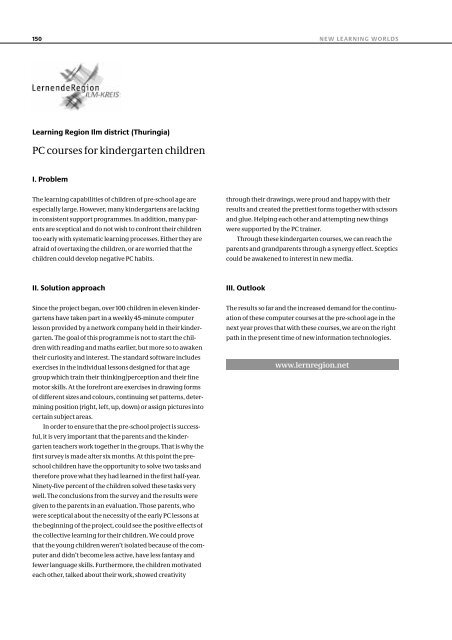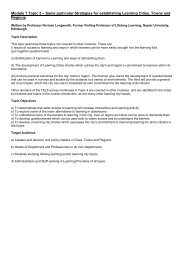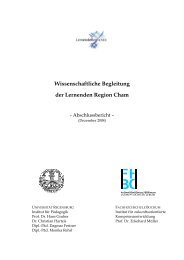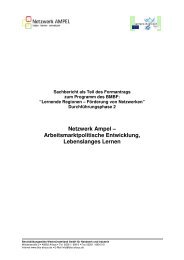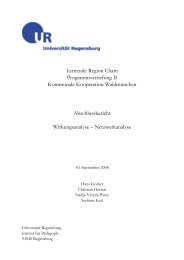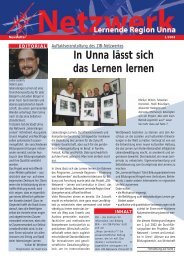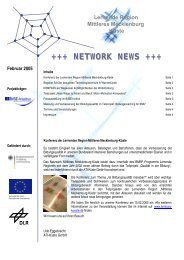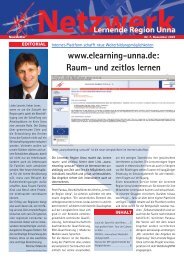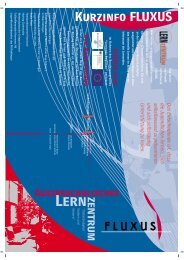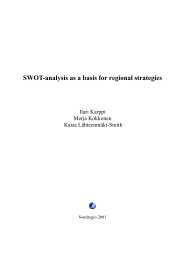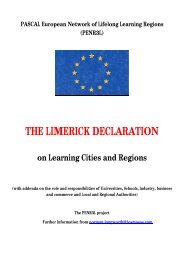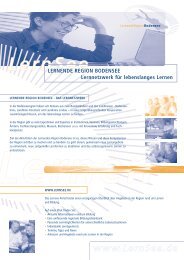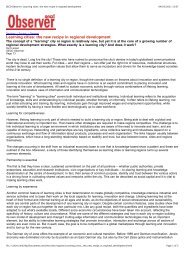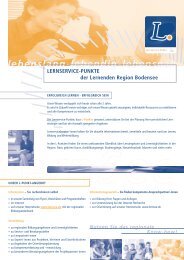Die Strategie für das Lebenslange Lernen ... - EUROlocal
Die Strategie für das Lebenslange Lernen ... - EUROlocal
Die Strategie für das Lebenslange Lernen ... - EUROlocal
Erfolgreiche ePaper selbst erstellen
Machen Sie aus Ihren PDF Publikationen ein blätterbares Flipbook mit unserer einzigartigen Google optimierten e-Paper Software.
150<br />
NEW LEARNING WORLDS<br />
Learning Region Ilm district (Thuringia)<br />
PC courses for kindergarten children<br />
I. Problem<br />
The learning capabilities of children of pre-school age are<br />
especially large. However, many kindergartens are lacking<br />
in consistent support programmes. In addition, many parents<br />
are sceptical and do not wish to confront their children<br />
too early with systematic learning processes. Either they are<br />
afraid of overtaxing the children, or are worried that the<br />
children could develop negative PC habits.<br />
through their drawings, were proud and happy with their<br />
results and created the prettiest forms together with scissors<br />
and glue. Helping each other and attempting new things<br />
were supported by the PC trainer.<br />
Through these kindergarten courses, we can reach the<br />
parents and grandparents through a synergy effect. Sceptics<br />
could be awakened to interest in new media.<br />
II. Solution approach<br />
III. Outlook<br />
Since the project began, over 100 children in eleven kindergartens<br />
have taken part in a weekly 45-minute computer<br />
lesson provided by a network company held in their kindergarten.<br />
The goal of this programme is not to start the children<br />
with reading and maths earlier, but more so to awaken<br />
their curiosity and interest. The standard software includes<br />
exercises in the individual lessons designed for that age<br />
group which train their thinking/perception and their fine<br />
motor skills. At the forefront are exercises in drawing forms<br />
of different sizes and colours, continuing set patterns, determining<br />
position (right, left, up, down) or assign pictures into<br />
certain subject areas.<br />
In order to ensure that the pre-school project is successful,<br />
it is very important that the parents and the kindergarten<br />
teachers work together in the groups. That is why the<br />
first survey is made after six months. At this point the preschool<br />
children have the opportunity to solve two tasks and<br />
therefore prove what they had learned in the first half-year.<br />
Ninety-five percent of the children solved these tasks very<br />
well. The conclusions from the survey and the results were<br />
given to the parents in an evaluation. Those parents, who<br />
were sceptical about the necessity of the early PC lessons at<br />
the beginning of the project, could see the positive effects of<br />
the collective learning for their children. We could prove<br />
that the young children weren’t isolated because of the computer<br />
and didn’t become less active, have less fantasy and<br />
fewer language skills. Furthermore, the children motivated<br />
each other, talked about their work, showed creativity<br />
The results so far and the increased demand for the continuation<br />
of these computer courses at the pre-school age in the<br />
next year proves that with these courses, we are on the right<br />
path in the present time of new information technologies.<br />
www.lernregion.net


